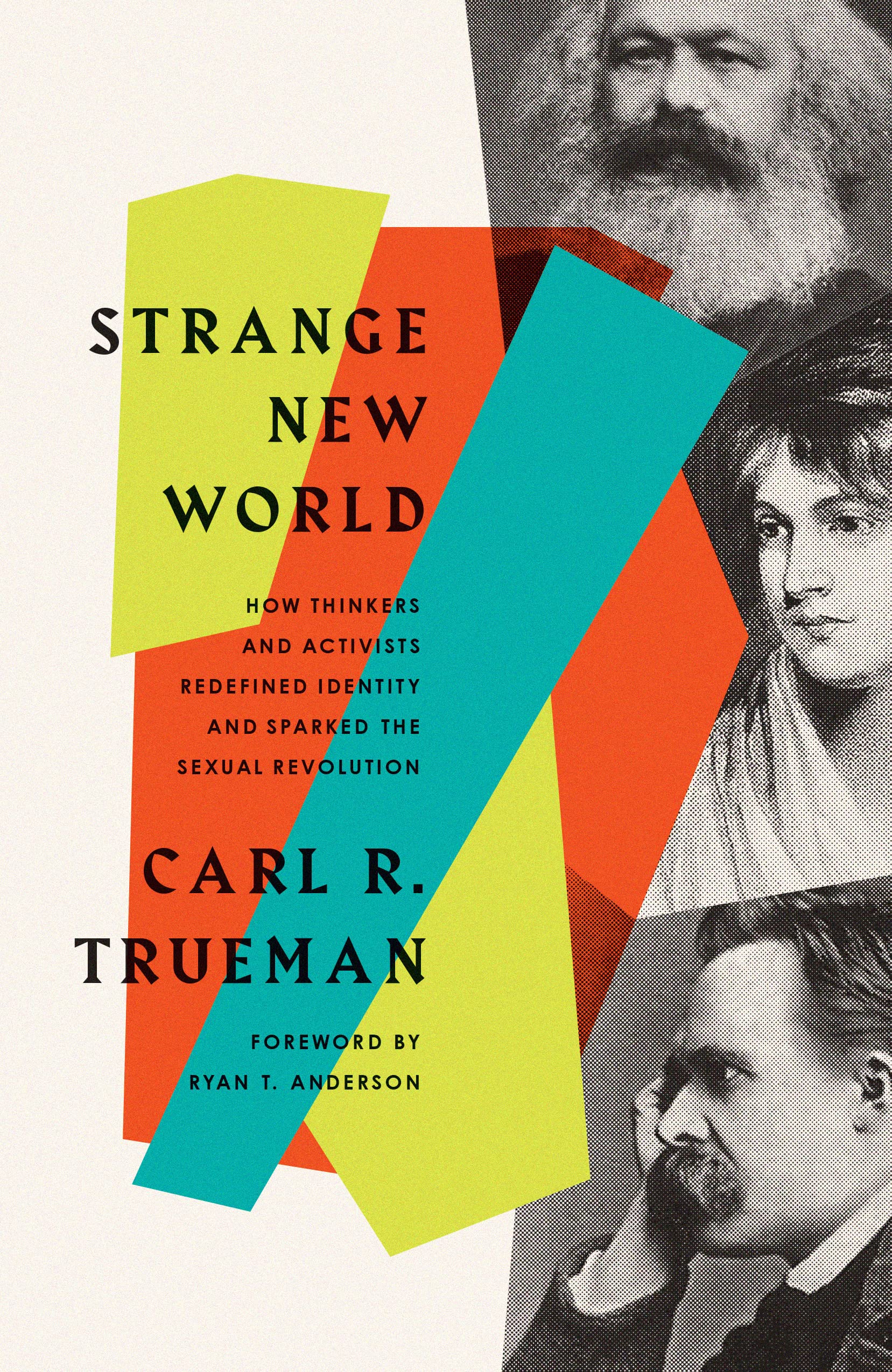A Brief Book Summary from Books At a Glance
by Steve West
About the Author
Carl Trueman is professor of biblical and religious studies at Grove City College. For many years he taught at Westminster Seminary. Trueman is the author of numerous books, including The Rise and Triumph of the Modern Self.
Table of Contents
Foreword – Ryan T. Anderson
Preface
1 Welcome to This Strange New World
2 Romantic Roots
3 Prometheus Unbound
4 Sexualizing Psychology, Politicizing Sex
5 The Revolt of the Masses
6 Plastic People, Liquid World
7 The Sexual Revolution of the LGBTQ+
8 Life, Liberty, and the Pursuit of Happiness
9 Strangers in This Strange New World
Summary
Chapter 1: Welcome to This Strange New World
Today, the world is confusing and strange to many people. Generations not only differ on things like musical tastes, but also on far more essential issues of what it means to be human and the purpose of sexuality. What some parents consider loving responses are considered hate-filled and bigoted by some of their children. In order to help bring some clarity to the vital issues of today, it is necessary to understand the contemporary concept of self. In order to do this, we must understand three additional concepts: “expressive individualism, the sexual revolution, and the social imaginary.” For many, the self is the “real me,” and this self is to be expressed publicly in accordance with inner feelings. Authenticity is essential, and it is understood as the ability to express our inner feelings in society in a way which receives affirmation. The modern self must achieve authenticity by acting out what is felt internally. This expressive individualism explains why people feel personally attacked if their behavior is questioned. It is this kind of expressive individualism which was foundational for the sexual revolution, and it is likewise foundational for the LGBTQ movement.
The sexual revolution does not merely involve freedom in sexual acts, but rather a shifting societal attitude which sees as normal and healthy things that were once considered sexually deviant. It is not just an expansion or loosening of traditional morality, but rather a rejection of sexual moral codes altogether. Those who now espouse traditional sexual morality are considered mentally or morally deficient. Given expressive individualism, if a person’s inner self is filled with sexual desire, they must be able to act it out in order to be authentic. Sex acts themselves are considered morally neutral: it is only consent that matters. Charles Taylor has used the term “social imaginary” to express the fact that most people do not have a philosophically consistent, analytical way of viewing the world, but they do imagine it to be a particular way. Reason and argument have their place, but most of our interaction in the world is based on intuition. “To anticipate my argument, it is my conviction that the dramatic changes and flux we witness and experience in society today are related to the rise to cultural normativity of the expressive individual self, particularly as expressed through the idioms of the sexual revolution.” . . .
[To continue reading this summary, please see below....]The remainder of this article is premium content. Become a member to continue reading.
Already have an account? Sign In
